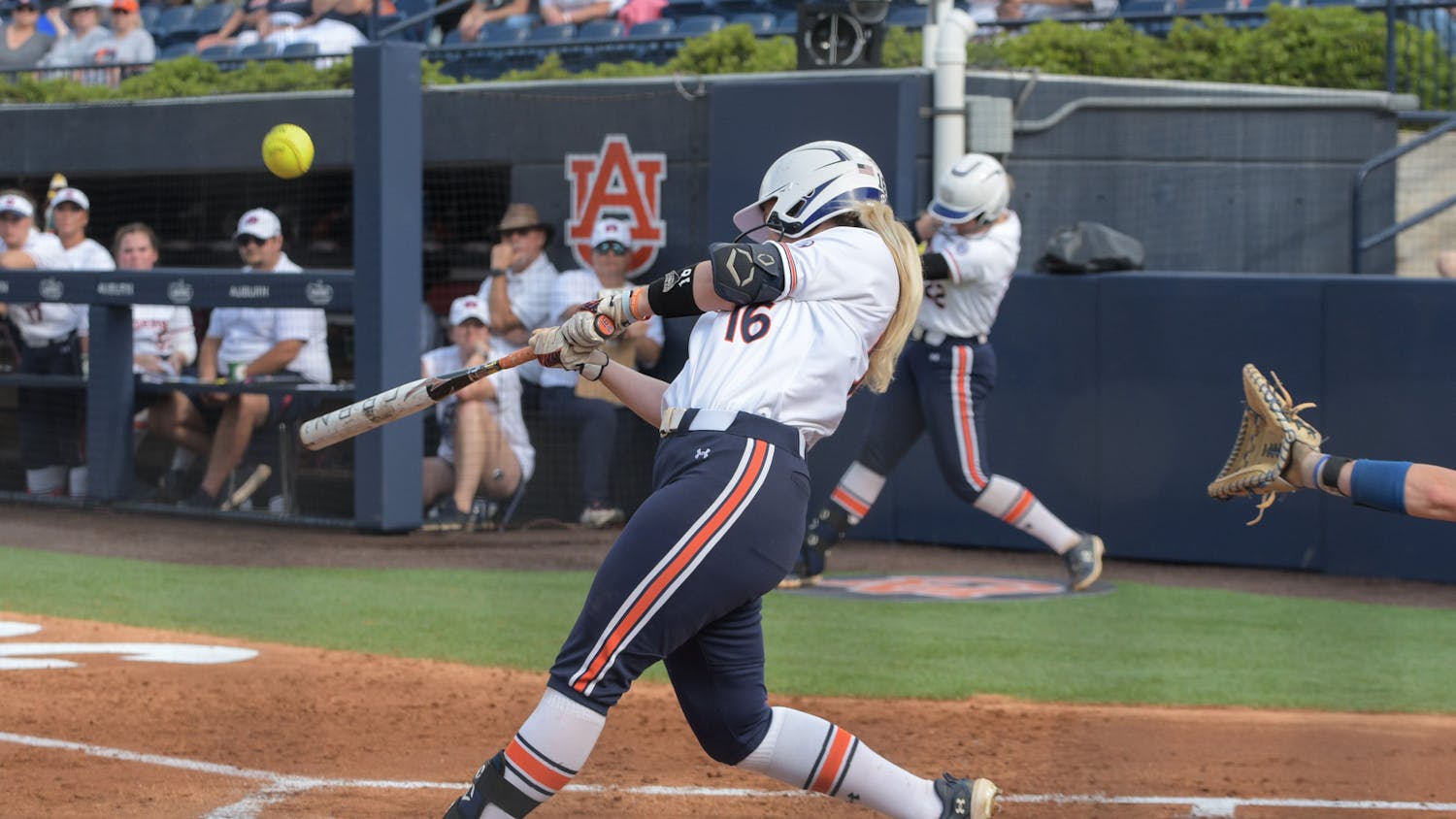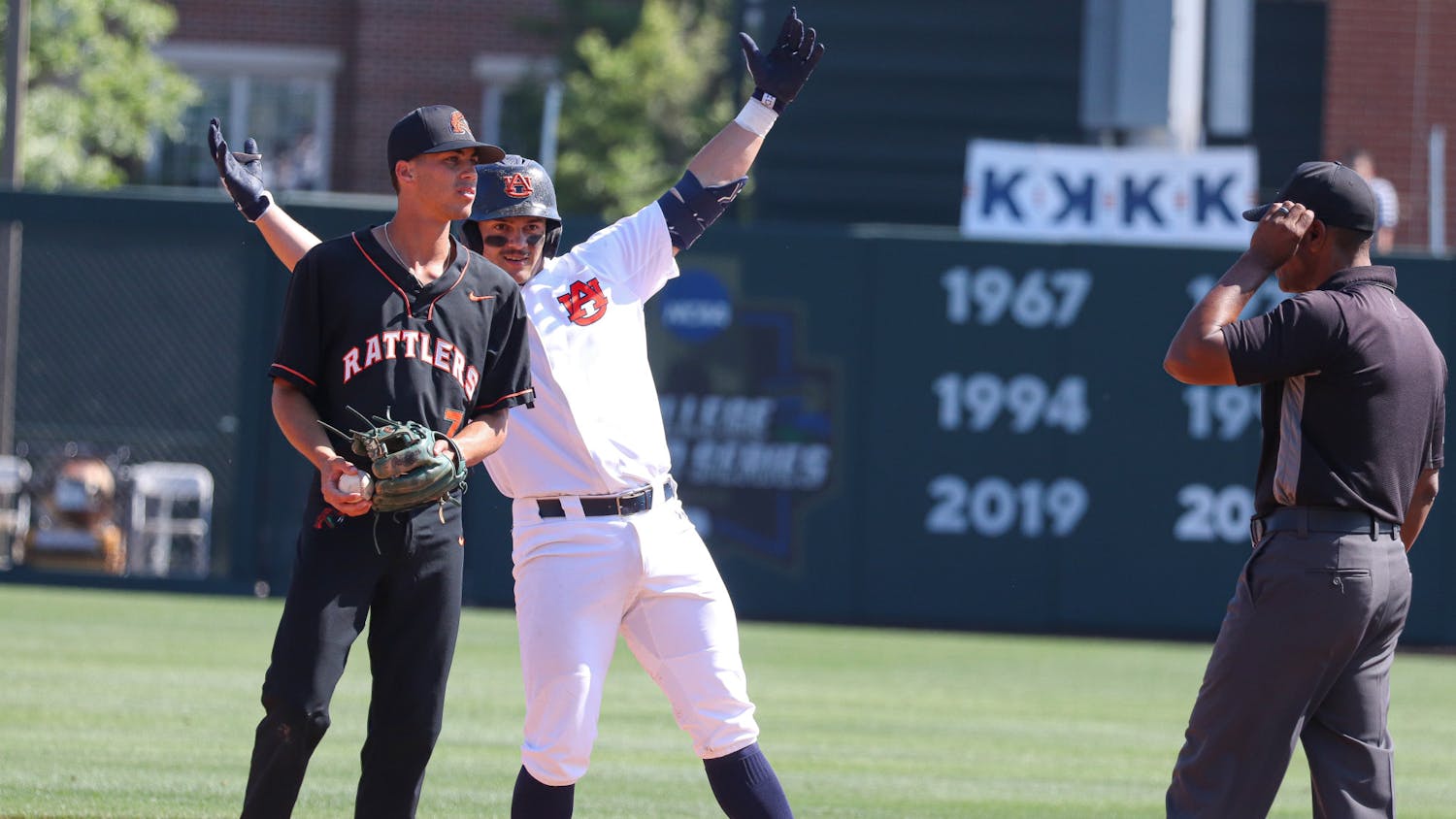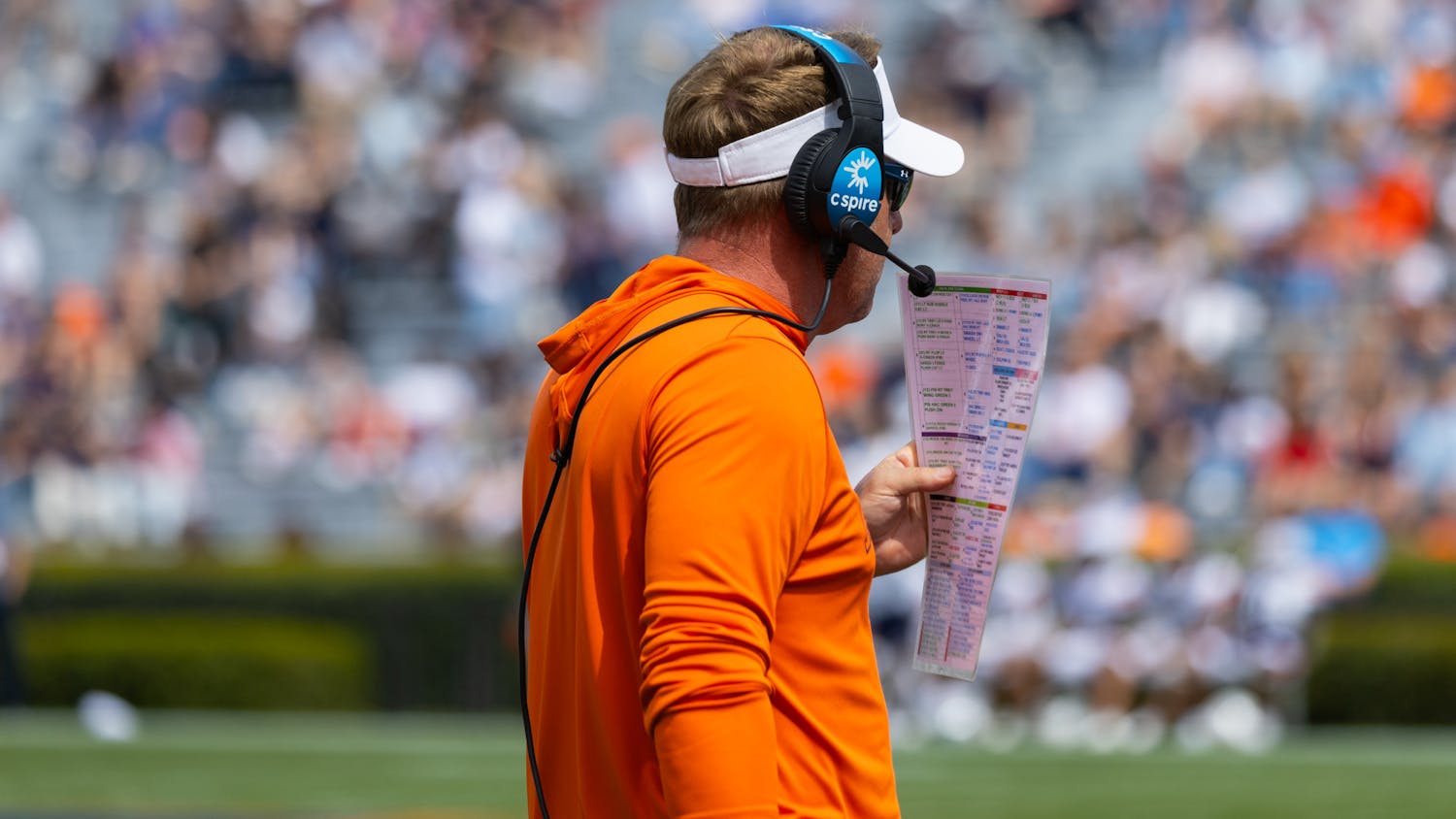The University Office of International Programs and the Auburn-Keimyung Korea Center presented a lecture titled "Hunger and Politics in North Korea: A Riddle, Wrapped in a Mystery, Inside an Enigma," with Doug Coutts, former United Nations humanitarian coordinator and World Food Programme representative.
Coutts has stayed in Bangladesh, North Korea, Namibia, Nepal, Washington D.C., and most recently in the Union of the Comoros Islands, off the East Coast of Africa.
Coutts shared his first-hand experiences working and living in North Korea’s capital, Pyongyang. Coutts helped establish the Hunger Solutions Institute at Auburn, where he now serves as a senior advisor, while he was a World Food Programme senior advisor for the University from 2008-12.
Coutts developed and taught Auburn’s first undergraduate course "World Hunger: Causes, Consequences and Responses," as well as the first Hunger Studies Capstone Senior Seminar. He also created the hunger studies minor and helped establish the Institute for Hunger Solutions at Aubu.rn.
Before joining the United Nations, Coutts worked in the U.S. House of Representatives as a founding member on the professional staff of the Select Committee on Hunger, and as an economist with the US Department of Agriculture.
Coutts used the acronym DPRK, Democratic People’s Republic of Korea, when referring to North Korea because that’s how North Koreans refer to themselves.
“What I’m going to try to do here is put you in the shoes of folks in North Koreans, the DPRK, which I know is hard to do sitting in Auburn, Alabama,” Coutts said. “For me it’s important to talk about the perspective from their side and it helps you, I’m hoping, to understand a bit as to why things happened the way they happened and why they will probably continue to.”
When referring to North Korea’s Public Distribution System, Coutts said, “All your needs are met, in principle. Toothpaste, trousers, underwear, shoes, food, are all supplied by the government. There are special places, specials shops where you go to get your annual allowing.”
“For food, the rations have gone down," Coutts said. "The official ration in North Korea is 700 grams per person per day. That comes out to be around 2,500 calories a day. That’s minimum calories. None of us in this room have had anywhere near that few calories today. The minimum to sustain life is that.”
Coutts said he has lived in a lot of countries that are supposed to be poor and look poor, but DPRK is not poor in the sense you’d expect.
He then showed a photo of an older woman beside a high rise in Pyongyang gathering weeds to supplement her diet, what he called alternative foods.
“People are left to their own devices,” Coutts said. “Pyongyang is a very modern city with high-rises and all that, but if you walk into an apartment building, the elevators have no power. It’s all up and down steps. This is the enigma. It took us a long time to really understand what we are experiencing. There’s the visual, and then there’s the suffering.”
At one point, the UN was feeding every single child in the country, Coutts said. A population of 24 million.
Coutts said the misery is equally distributed among the population.
“This was new to us," Coutts said. "Usually it’s the haves and the have nots, but in North Korea it’s all of the vulnerable.”
The vulnerable are the children, pregnant and lactating women, the girls who are approaching puberty and of child-bearing years and the elderly, Coutts said. The goal is to improve the nutritional support for those most affected and to build resilience with communities.
Coutts reminded crowd of President Reagan’s famous quote from 1985 when he approved food aid to Ethiopia, “A hungry child knows no politics.”
Coutts said in the future, the DPRK is going to remain dependent on food aid, until sanctions cease.
He ended the lecture and said none of the U.S. presidents have ever met with North Korean leaders.
“How many American presidents have been there? Leaders of the free world, the US President, right? None of the leaders of North Korea have ever met with these people,” Coutts said. “The former presidents have gone over to beg and hope for the release of some hostage that they’ve got, some poor tourist, and that’s about it. No serious discussions.”
Coutts said Dennis Rodman, retired professional basketball player, and his travel part were the first known Americans to have met Kim. Rodman spent days in North Korea with Kim Jong-un, and when he returned to the US, he said, “Kim Jon-un wants to meet President Obama.”
Do you like this story? The Plainsman doesn't accept money from tuition or student fees, and we don't charge a subscription fee. But you can donate to support The Plainsman.



